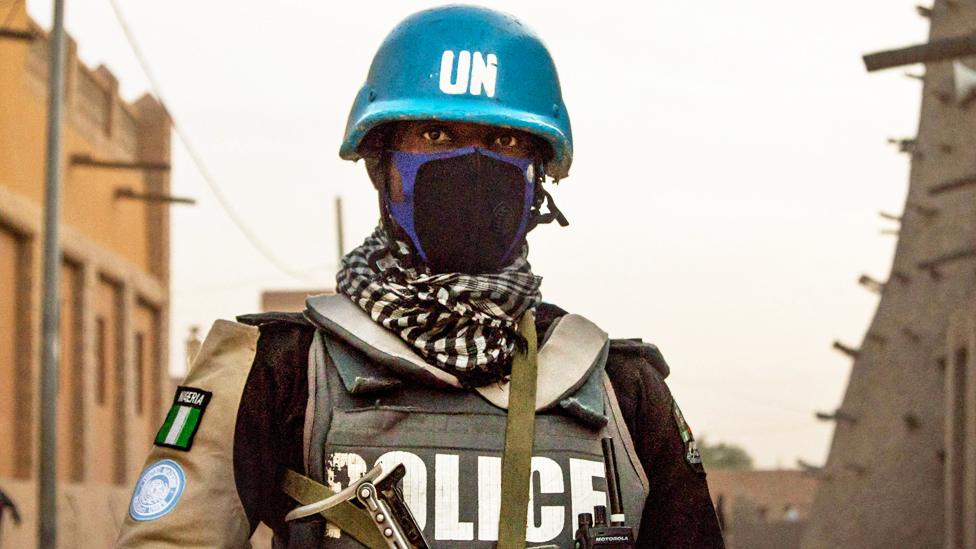Niger power blackouts blamed on coup sanctions
- Published
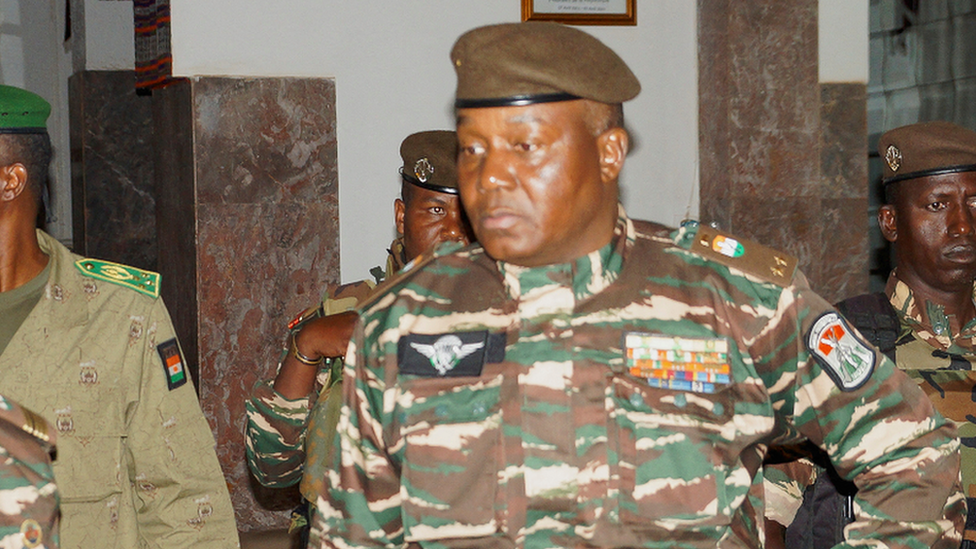
General Abdourahmane Tiani was declared the new head of state following last week's military coup
Major cities in Niger are facing rolling blackouts following last week's coup in the West African country.
The power shortages are a result of Nigeria cutting supplies to its northern neighbour, Niger's electricity company Nigelec says.
West African trade bloc Ecowas has put sanctions on Niger, but has not said if these include electricity supplies.
Ecowas defence chiefs are meeting in Nigeria to discuss a potential military intervention to roll back the coup.
On Sunday, West African leaders gave Niger's military junta a week to give up power or face possible military consequences.
Speaking on Wednesday, Abdel-Fatau Musah, Ecowas commissioner for political affairs, peace and security, said an armed intervention would be a "last resort". But he insisted that the bloc had to "prepare for the eventuality".
Ecowas has vowed to end the wave of coups that has plagued West Africa's Sahel region in recent years. With this in mind, Mr Musah said there was "a need to demonstrate that we cannot only bark, but can bite".
The ruling military juntas in Mali and Burkina Faso have warned Ecowas against any intervention in Niger, insisting any military action against the new regime would also be tantamount to a "declaration of war" against them. They did not send their defence chiefs to the Ecowas meeting in Nigeria's capital, Abuja
European countries are currently evacuating its citizens from Niger.
Residents living in the cities of Niamey, Maradi and Zinder have power for about an hour at a time before it is switched off for up to five hours.
Power cuts like these are unusual in Niger, which normally has regular and reliable supplies.
But the country is heavily dependent on its wealthier neighbour to the south, Nigeria, as its main supplier of electricity. In 2019, Nigelec's chief executive told the Ideas For Development outlet that Niger relied on Abuja for up to 70% of its electricity supply.
The Transmission Company of Nigeria has declined to comment on the power cuts in Niger.
But an anonymous source told the BBC the supply to Niger was cut on Tuesday following a presidential directive.
Niger's democratically elected President Mohamed Bazoum was overthrown in a military coup last week by his own presidential guards who stood watch outside his palace.
The constitution was suspended and Gen Abdourahmane Tchiani, chief of the presidential guard, was installed as the head of state.
The military government has now announced the reopening of Niger's borders with Algeria, Burkina Faso, Libya, Mali and Chad. Its borders with Nigeria remain closed.
A delegation from Ecowas - the Economic Community of West African States - arrived in Niger's capital, Niamey, on Wednesday as mediation continues following the coup. It is led by Nigeria's former military head of state, Gen Abdulsalami Abubakar, who oversaw that country's transition from military rule to democracy in 1999.
Nigeria's most senior Muslim leader, the Sultan of Sokoto, Muhammadu Sa'adu Abubakar III, is also reported to be part of the team. He also wields huge influence in Niger, part of which used to be in the Sokoto Caliphate, a powerful kingdom before colonial rule.
Evacuation flights have now started to arrive in Europe. Some 262 French citizens touched down in Paris early on Wednesday amid anti-French sentiment in the country.
The coup has prompted demonstrations against the former colonial power, with the French embassy coming under attack.
France says it has no plans to repatriate about 1,000 French soldiers stationed there as part of efforts to counter Islamist militants.
Additional reporting by Nkechi Ogbonna in Lagos
- Published2 August 2023
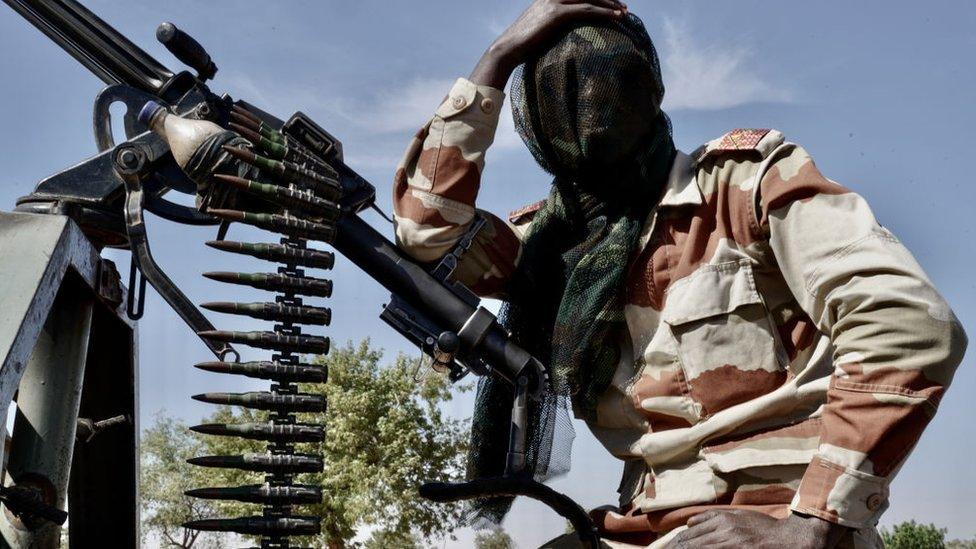
- Published1 August 2023
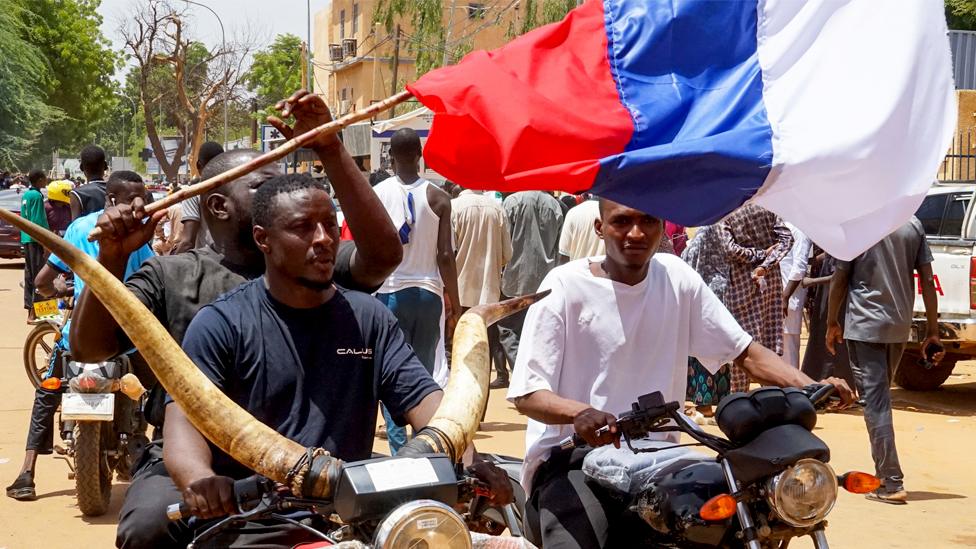
- Published28 July 2023
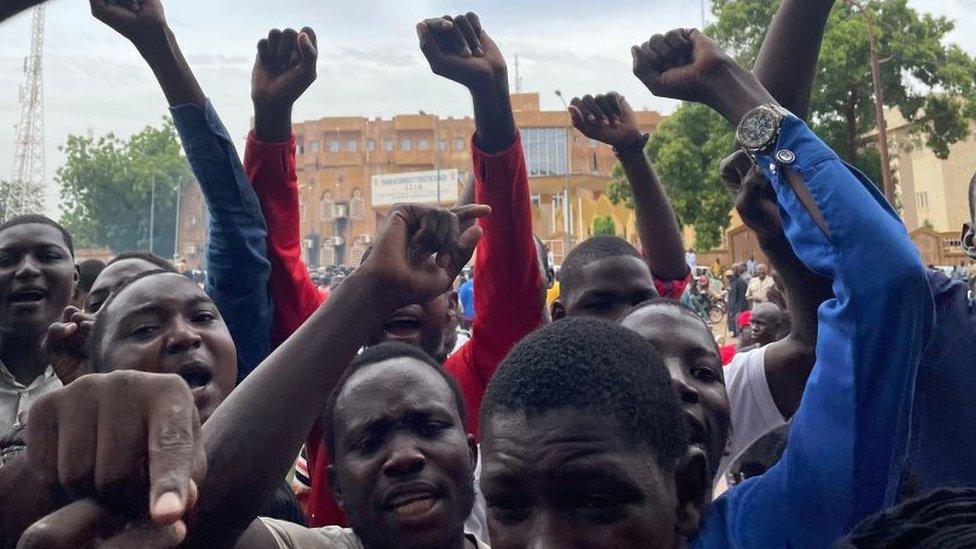
- Published30 August 2023
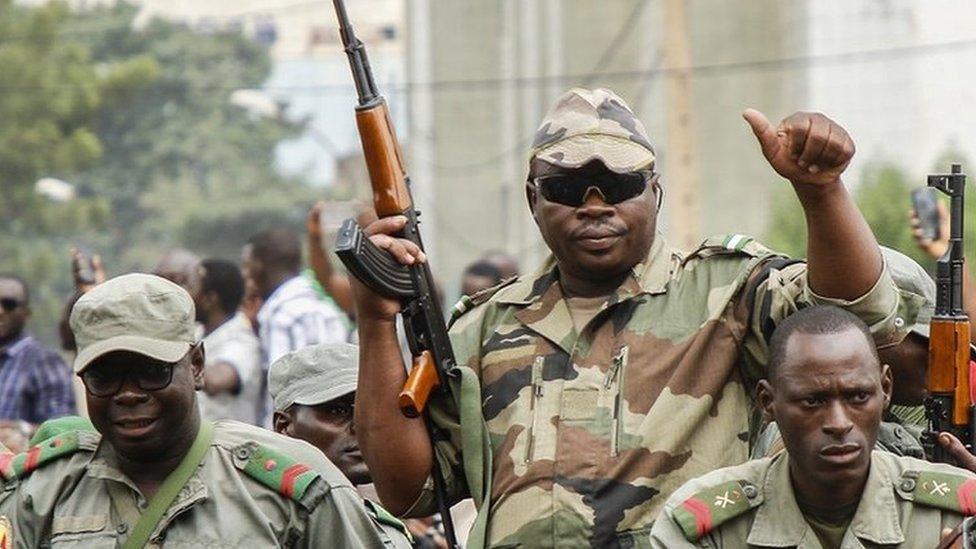
- Published30 June 2023
